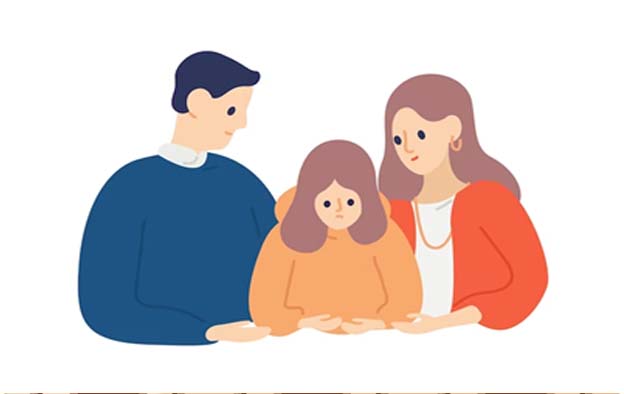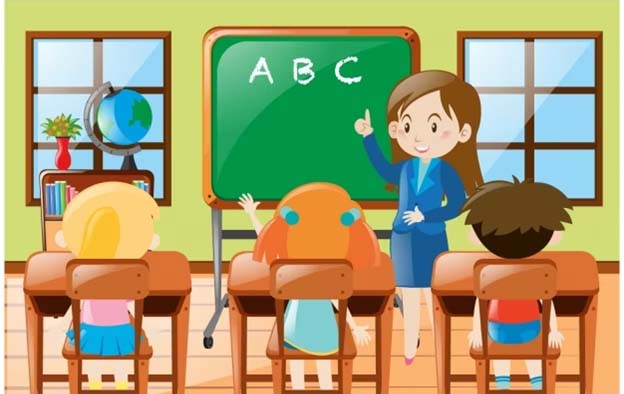In a society that often places a high weightage on success, it is crucial to teach children the importance of celebrating failures. Failure is an integral part of growth and learning, and when children learn to embrace their mistakes, they develop resilience, creativity, and a growth mindset.
Also Read: Tips to Build a Growth Mindset in Kids
Teaching Children To Celebrate Failures
Here are various strategies and insights on how to teach children to celebrate failures as a valuable and essential part of their journey towards success.
Foster a Growth Mindset
A growth mindset, as popularised by psychologist Carol Dweck, is the belief that abilities and intelligence can be developed through effort, learning, and persistence. Encouraging a growth mindset in children lays the foundation for embracing failures as opportunities for growth.
Start by praising effort and perseverance rather than just innate talent. When children understand that their abilities can improve with practice and learning from failures, they are more likely to view mistakes as stepping stones to success.
Share Personal Stories
Parents and caregivers can help children learn to celebrate failures by sharing their own experiences of setbacks and mistakes. Talk about your own failures, how you felt at the time, and what you learned from those experiences. This demonstrates that failure is a common and natural part of life, and it can lead to valuable lessons and personal growth.
Encourage Risk-Taking
Encourage your child to take risks and step outside of their comfort zone. When children are willing to try new things, they are more likely to encounter failure along the way. Emphasise that taking risks is a courageous act and that it’s okay not to succeed every time. Celebrate their bravery and willingness to explore new horizons.
Normalise Failure
Teach children that failure is a normal part of the learning process. It’s not something to be ashamed of or feared. Share stories of famous individuals who faced numerous failures before achieving great success. Highlight how many of the world’s most innovative inventions and breakthroughs resulted from a series of failures and mistakes.
Encourage Self-Reflection
After a setback or failure, encourage your child to reflect on what went wrong and what they can learn from the experience. Ask open-ended questions like, “What do you think could have been done differently?” or “What did you learn from this?” By engaging in self-reflection, children can extract valuable insights from their mistakes and failures.
Also Read: Building Resilience and Coping Skills in Students
Set Realistic Expectations
Help your child set realistic expectations. Unrealistic or overly ambitious goals can set them up for disappointment. Teach them that it’s okay to aim high but that setbacks are a part of the journey. Encourage them to break their goals into smaller, manageable steps, making it easier to track progress and learn from their experiences.
Emphasise Effort Over Outcome
When discussing your child’s accomplishments, focus on the effort they put in rather than just the end result. Praising effort reinforces the idea that hard work and perseverance are more important than immediate success. It sends the message that even if they don’t achieve a particular goal, their dedication and determination are commendable.
Encourage a Supportive Environment
Create a safe and supportive environment where your child feels comfortable discussing their failures and mistakes. Let them know that they can come to you without fear of judgement. This open communication fosters resilience and helps children process their feelings and thoughts surrounding failure.
Teach Coping Strategies
Teach your child healthy coping strategies for dealing with failure. Strategies like deep breathing, mindfulness exercises, or talking through their feelings with a trusted adult can help them manage disappointment and frustration constructively. These skills are invaluable in navigating life’s ups and downs.
Also Read: What is Stage Fear and How to Overcome Stage Fear
Celebrate Small Wins
While it’s essential to teach children the value of celebrating failures, it’s equally important to celebrate their successes, no matter how small. Recognizing their achievements, even if they are incremental, boosts their self-esteem and motivation to keep trying.
Encourage Persistence
Emphasise the importance of persistence in the face of setbacks. Remind your child that many successful people encountered numerous failures but kept going. Share examples of individuals who faced rejection or failure but ultimately achieved their goals through perseverance.
Provide Opportunities for Learning
Create an environment that encourages continuous learning. Support your child’s curiosity and provide them with opportunities to explore new interests and skills. When children see that learning is a lifelong journey filled with both successes and failures, they are more likely to embrace the process.
Avoid Punishing or Shaming
It’s crucial to avoid punishing or shaming your child for their mistakes or failures. Instead, use failures as teachable moments. Discuss what went wrong and how they can improve in the future. Make it clear that you love and support them regardless of their performance.
Encourage Collaboration
Teach children the value of collaboration and teamwork. When working on group projects or activities, they may experience differences of opinion or make mistakes. Emphasise that these challenges are opportunities to learn from others and develop stronger problem-solving skills.
Be Patient
Finally, be patient and understanding as your child navigates the ups and downs of life. It may take time for them to fully embrace the concept of celebrating failures. Offer support, guidance, and encouragement as they develop resilience and grow through their experiences.
Also Read: Dealing with Scared Kids: Common Fears and Strategies
Teaching children to celebrate failures is an invaluable life lesson that sets the stage for personal growth, resilience, and success. By fostering a growth mindset, encouraging risk-taking, and providing a supportive environment, you can empower your child to view failures not as obstacles but as stepping stones on their journey toward achieving their goals and dreams. Remember that the lessons learned from failures often shape individuals into more resilient, creative, and determined individuals who are better equipped to navigate life’s challenges.
EuroSchool teaches students to embrace failures and not get disheartened due to such setbacks. We ensure that every student has a positive mindset despite any challenges faced by them.











